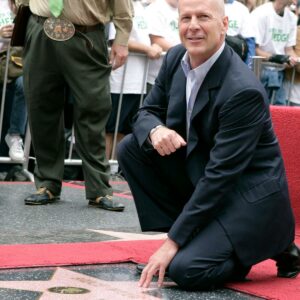Anna Kendrick, a talented actress and singer celebrated for her roles in films like Pitch Perfect and Up in the Air, has emerged as a prominent advocate for diversity and inclusion in the film industry. Kendrick’s commitment to these principles goes beyond her on-screen performances, extending into her public statements and activism. She firmly believes that diversity is not just a buzzword but a transformative force capable of reshaping the movie business in meaningful ways. This article explores Kendrick’s perspectives on diversity, its role in representation, the importance of breaking stereotypes, creating opportunities, and its overall impact on the industry.
The Role of Representation
Anna Kendrick’s advocacy for diversity underscores her belief that representation in film is crucial for crafting authentic narratives that resonate with a broad audience. Representation, in Kendrick’s view, is not merely about including diverse characters for the sake of appearance but about reflecting a range of experiences and backgrounds that enrich storytelling.
Historically, film has often relied on a narrow spectrum of characters and stories, predominantly showcasing perspectives from a limited demographic. This lack of diversity can lead to a homogenized view of the world, which fails to resonate with many viewers and perpetuates stereotypes. Kendrick argues that when films include characters from diverse backgrounds and portray their experiences with authenticity, they offer audiences a more comprehensive understanding of the world around them.
For Kendrick, diverse representation in film fosters empathy and broadens perspectives. When viewers see themselves reflected on screen, it validates their experiences and encourages greater societal acceptance of varied identities. Moreover, this kind of representation allows audiences to engage with stories that challenge their preconceptions and broaden their understanding of different cultures and viewpoints.
Breaking Stereotypes
A significant part of Kendrick’s advocacy is her push to break down harmful stereotypes that have long plagued the film industry. Many films have historically perpetuated narrow and often damaging portrayals of certain groups, which can reinforce prejudiced views and limit the scope of characters available to actors from underrepresented backgrounds.
Kendrick has been vocal about the need to challenge and deconstruct these stereotypes, advocating for more complex and nuanced portrayals. She believes that by moving away from one-dimensional and clichéd representations, the film industry can create a more respectful and accurate depiction of diverse groups. This shift not only benefits the individuals being portrayed but also enriches the viewing experience for audiences who are exposed to more varied and authentic stories.
For example, the stereotypical portrayals of women, people of color, and LGBTQ+ individuals have often been restrictive, reducing these characters to mere plot devices or caricatures. Kendrick supports efforts to move beyond these limitations, encouraging writers and directors to craft characters with depth and individuality. This approach can lead to more meaningful and engaging stories that resonate on a deeper level with audiences.
Creating Opportunities
Kendrick’s commitment to diversity also includes a strong focus on creating opportunities for underrepresented talent. She emphasizes that achieving true inclusivity involves not only who appears on screen but also who holds the power behind the scenes.
In the past, the film industry has seen a disproportionate number of decision-makers and creative roles held by individuals from a narrow demographic. This lack of diversity in key positions can result in stories that fail to reflect the experiences of a broader range of people. Kendrick argues that increasing diversity in directing, writing, and producing roles is essential for ensuring that diverse stories are told from an authentic perspective.
Initiatives aimed at supporting underrepresented talent in these areas are crucial. Programs that provide mentorship, training, and funding for emerging creators from diverse backgrounds can help level the playing field. By advocating for these initiatives, Kendrick supports a more equitable industry where diverse voices have the opportunity to shape the narratives being presented on screen.
Moreover, creating opportunities for underrepresented talent also involves recognizing and addressing systemic barriers that may hinder access to these roles. Kendrick’s advocacy highlights the need for structural changes within the industry to support and elevate voices that have historically been marginalized.
Impact on the Industry
The impact of embracing diversity in the film industry extends beyond the individual projects and stories being told. Kendrick believes that a more inclusive industry can lead to greater innovation and creativity. When a broader range of voices and experiences is welcomed, it opens the door to new and exciting storytelling possibilities.
Diverse perspectives can lead to fresh ideas and unique approaches to filmmaking. For instance, stories that explore different cultural backgrounds or tackle issues from various viewpoints can bring new energy and originality to the industry. This diversity of thought can also attract a wider audience, as films that reflect a variety of experiences are likely to appeal to a broader demographic.
Furthermore, the incorporation of diverse voices can drive cultural change. Films have the power to influence societal attitudes and perceptions. By showcasing diverse characters and stories, the industry can contribute to shifting cultural norms and promoting a more inclusive society. Kendrick’s advocacy underscores the potential of the film industry to not only entertain but also inspire positive change.
Conclusion
Anna Kendrick’s insights into the importance of diversity in film reflect a growing recognition within Hollywood of the need for more inclusive representation. Her emphasis on breaking stereotypes, creating opportunities, and the broader impact on the industry highlights a significant movement towards a more equitable and diverse cinematic landscape.
As the film industry continues to evolve, Kendrick’s advocacy serves as a powerful reminder of the value of diversity in shaping a richer and more inclusive cinematic world. By embracing diverse perspectives and experiences, the industry can produce more compelling and relevant content, fostering empathy and understanding among audiences and driving cultural change. Kendrick’s commitment to these principles not only enhances the stories being told but also contributes to a more inclusive and innovative film industry.





